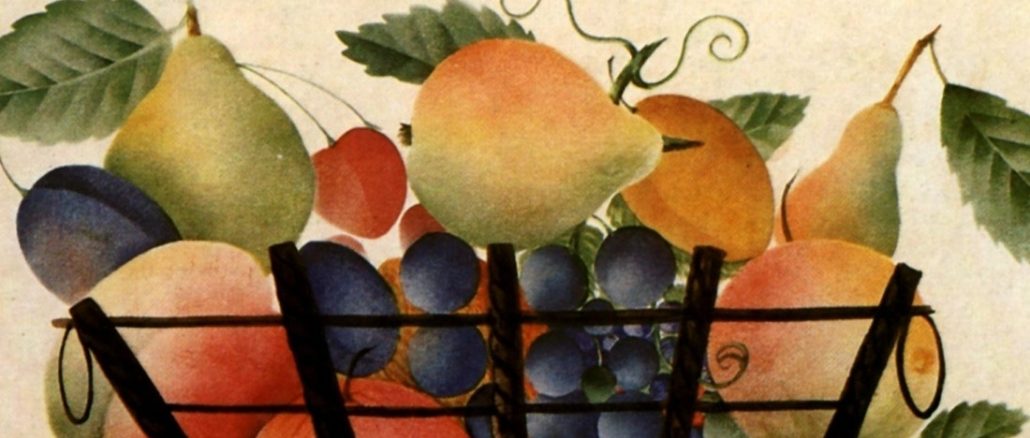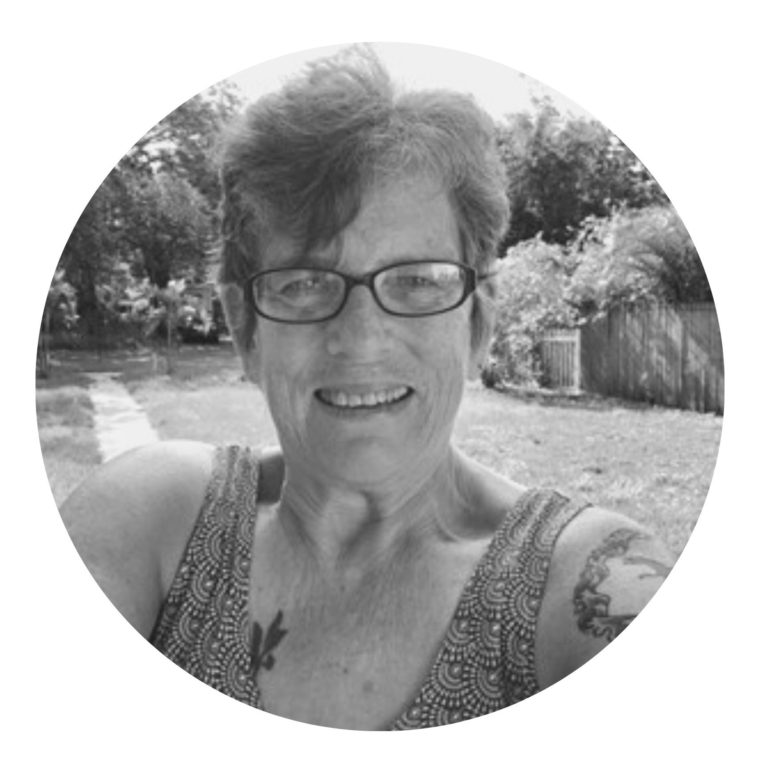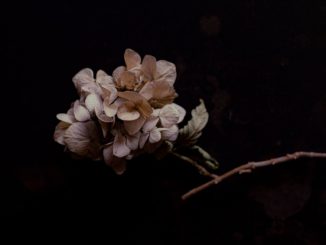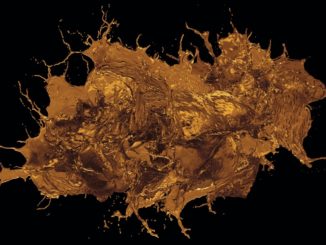
With a stomach full of strip mall kabobs and a grin from ear to ear, I sped away from the Greek Taverna with “Gold Dust Woman” blasting on the radio. Target, Ulta Beauty and the Cracker Barrel dotted the road in a suburban sameness that I’d seen expand each year that I visited. I missed the scrub pines, white oaks, and sawgrass that I’d seen slowly displaced since I’d left the area. But my mind didn’t linger long on these losses.
“There’s no other grin like this grin,” I rejoiced, buoyed by the exhilaration that comes from time spent with a kindred spirit.
Now, and across my life, I could count on one hand the number of people who “got” me. Molly Jo was one. Drawn to Molly’s quick wit and ironic smile during icebreakers, I’d gone on to exchange banter and commiserate with her during our year-long teacher prep program long ago. And yet, it had been decades since we had last had a conversation.
Molly Jo’s eyes and mine had met under the glare of fluorescent lights across a sterile university classroom. Eyebrows raised slightly, mouth set in an unreadable line, cynicism radiating, I could tell we shared the thought, “Can you believe him?” The him was our professor in the cohort teacher prep program that would keep us together — with him and ten other students — while we learned the ins and outs of early childhood education. On this day, he was likely describing, for probably the third time in an hour, his theories about how you can’t expect a scooter to keep pace with a corvette (his brand of equity). Or he was punctuating his lecture with an “I’m OK, You’re OK” statement meant to bring us into the fold of his worldview. Both Molly and I had seen too much to take him seriously.
Still in my 20s, I was a mother of two young sons, married to a man who accused me of “thinking too much,” with a father who was puzzled at the need for a college degree for his daughter. Though Molly Jo was on her first foray beyond her small town, she’d been raised by her educator father when her mother had left after deciding marriage and family were too much for her migraines. We bonded over humor: hers, dry and deadpan, mine constantly erupting in a loud guffaw. We bonded over pull-no-punches truth-telling about our lives. And we bonded over a deep belief that teaching, so unglamorous and seemingly mundane, was a calling that could change lives.
The people I love the best
jump into work head first
without dallying in the shallows
and swim off with sure strokes almost out of sight.
In the early years after graduation, I visited Molly Jo as regularly as a new teacher could manage. I hadn’t seen a rodeo since my early days in Texas, and my seven-year old son Sean’s only notion of cowboys came from Westerns on the Classics channel. By then Molly had married Fred, whose bulky strength meant he thought nothing of hoisting Sean on his shoulders as we walked into the rodeo bleachers. Fred’s knowledge of the world coupled with his inner peace meant he didn’t bat an eye at the stares of the locals at a Black man carrying a white boy.
From Fred, I learned about hunting wild hogs and the African Methodist Episcopal church where he put his eloquence to good use. Fred’s boisterous and infectious laugh and pithy way with words left me feeling embraced by a person who knew and loved the world in all its idiosyncrasies. By then my own marriage to a good-old-boy in Tampa, doomed from our teen start, was reaching its logical conclusion. My two sons had gone to live with their father, and, though I was excited about the prospects of an identity on my own, I was also searching for ways to escape my failures.
I want to be with people…
who are not parlor generals and field deserters
but move in a common rhythm
when the food must come in or the fire be put out
During my undergraduate program, my cynical eye-rolling with Molly Jo masked seething frustrations over unmet expectations in my education. One afternoon I stormed into the university media center where I exploded in a tirade to Molly Jo.
“I’ve had enough of people telling us how we should be teaching but doing the same old thing. Someday I’m going to become a university professor and teach the way we’re supposed to be teaching.”
She’d nodded empathetically and we vowed to do better in the lives we would lead before we turned our attention to the task at hand, creating catchy classroom visuals with the high tech equipment of the time: opaque projectors and laminators. With my pronouncement, but little understanding of what was required, I’d decided that I’d get a PhD. And in that moment, I’d also decided that I’d be leaving Florida along with family and beloved friends like Molly Jo.
On a dewy morning in my 28th year I climbed into my battered Dodge Dart to head to a graduate program in Chicago. Uncharacteristically, my mother, who was seeing me off, quieted her typical pessimistic cautions, instead setting her face and bidding me good-bye saying, “I think you were meant to live in the big city.” Beside me in the passenger seat rode Pete the hamster, spinning away on his wheel.
Much as my seafaring father had done during his long months away, I sent newsy letters to my mother, and care packages full of wind-up toys and sentimental notes to my sons. Annual Christmas cards with photos kept me in touch with Molly — barely. From her last card three years ago, I knew that her daughter, Liz, was grown and gone and Fred had died. And still she taught in her rural county, while I found my way, first in an urban university, later in a residential center with deaf students.
I love people who harness themselves, an ox to a heavy cart,
who pull like water buffalo, with massive patience,
who strain in the mud and the muck to move things forward,
who do what has to be done, again and again.
In my memory of Florida I had pictured Molly Jo’s countryside school as far away from Tampa and so, although I visited Florida annually, I never visited Molly Jo. This visit was different. Now, in my first full year of retirement, I wanted to reconnect with this person who’d been a touchstone in my life. After typing the address for Molly Jo’s school into my GPS, I was shocked to see it was a remarkably short hour-long route. Sentimentally, I thought how wonderful it would be to see Molly Jo at work in her classroom, to walk the halls of her school, to meet her students. But times had changed and in these post-Sandy Hook days, visitors were no longer permitted in the building. For Molly, this was no great loss. She said she’d been eager to eat more exotic food than her local diner, and we agreed on the best Greek restaurant available in Tampa’s suburbs.
The three-hour dinner with Molly Jo flew by. We reminisced about him, the family years that had come and gone like a flash, and the constant hum of keeping it real in settings often startled to find us in their midst. She, a feminist preacher’s wife with a Black daughter whose Diva qualities and progressive ideas often shocked the local townspeople. Me, the daughter of a shrimper partnered with a woman and mentored by a member of the radical left.
After touching on the ironies of life, we quickly covered spouses, children, grand-children and great-grandchildren. Warmed up, we moved to on to more spirited conversations about teacher relationships with families, the Notorious RBG, and biracial families like Molly’s. Molly Jo allowed as how she found challenges in living in a conservative town.
“I no longer tell my students that anyone can become president,” she added.
Before I knew it, we were saying our good-byes as I glanced at my watch. Though I was usually impatient with social talk, I was shocked to see how much time had passed. I longed to suggest we continue conversation, maybe over drinks somewhere, but remembered Molly would be setting her alarm for five a.m. to prep for class. We wrapped up with photos and hugs, and I drove off reflecting that this had been time well spent.
I want to be with people who submerge
in the task, who go into the fields to harvest
and work in a row and pass the bags along.
As “Gold Dust Woman” segued into “The Chain”, my euphoria shifted to melancholy. The grip of glumness held on into the evening and the following morning as I turned it around and around in my head, wondering why I felt sad. Finally, the answer floated up like a mystic word on a Magic 8-Ball game. Regret. I regretted not having spent more time with Molly Jo over the years.
There was always that student for whom I hadn’t yet found the key to unlock their mind. One more section of my dissertation to refine. More time spent on being the teacher or administrator that I’d always wanted as a role model, less time on frivolous distractions such as friends and family. All fueled by adrenaline and an inner sense of accomplishment. It wasn’t the decisions. It wasn’t the turns made that I regretted. But along the way there had been hints of what was to come.
There’d been my son, Sean’s, epigraph submitted as an assignment for his high school English class. One word for his headstone: Balance. I asked why that word.
“It just makes sense,” he answered quickly.
“What do you mean by Balance?” I probed.
He talked about how he’d watched me spend my life, with work first and everything else a distant second.
“Sure, I know you love your work, but I want to do things different. I want more balance between work and the rest of life,” he added, shrugging his shoulders.
Pleased that I was raising a son who was already thinking about quality of life, I didn’t stop to think about the message for my own life.
Although I was surprised at Sean’s ability to come up with one word that captured his feelings, I was not blindsided by the point-of-view. After some years living with his father, Sean had spent his adolescence and college years living with me and my wife during a time proclaimed by my 30th year birthday cake to be my Do-It Decade. That cake-top mandate was a recognition that I’d finished my PhD that year and was shifting to a work-life where I would need to step up my game. Learning centers and medieval units were replaced by classes in the philosophy of education, curriculum-planning committees, and publish-or-perish mandates.
A year later, Sean and I headed towards a security check-in for a flight from Chicago, where we now lived, to our native state of Florida, to visit the rest of our family. As usual, I was balancing a bulging suitcase full of books alongside a laptop and purse. Straps sliding off my shoulders, trailing behind Sean’s long athletic stride, I grumbled to myself wishing he’d lend a hand. Sean’s face scrunched in a scowl and he turned to me in apparent irritation at all the accessories I seemed to need for a simple long weekend. The scowl had become familiar since he’d become a teenager, but his comment was a surprise.
“You never go anywhere without taking your work with you,” he growled.
“Of course,” I thought.
Greek amphoras for wine or oil,
Hopi vases that held corn, are put in museums
but you know that they were made to be used.
The pitcher cries for water to carry
and a person for work that is real.
Sean would go on to take a job in the federal government, a job with security and little connections to his passions, but with balance with time spent with the people in his life.
As my do-it-decade came to a close, there was that shocking discovery of summer sunlight. I’d been an educator for fifteen years and, unlike most teachers, I’d never had a summer off. My early years of public school had been in a year-round school system. The private schools where I taught had school year and summer programs and never closed. And as a university professor on a quarter system, I’d taught each of the four quarters of the year. Teaching was my passion and I couldn’t get enough of it. I gladly taught year-round, until the spring, just before I turned 40, when suddenly I could barely lift my head out of bed, no matter how much I’d slept. Chronic Fatigue Syndrome, they said. For the first time in my life I took the summer off. I never even knew that summer days are longer than days in other seasons. How many long summer days of backyard barbecues and glowing twilights had I missed? What else — who else — had I missed all those years?
The work of the world is common as mud.
Botched, it smears the hands, crumbles to dust.
But the thing worth doing well done
has a shape that satisfies, clean and evident.
In her poem “To be of Use”, Marge Piercy celebrates people who immerse themselves in work, without dallying in the shallows. But she never asks what becomes of the people left in the shallows. She goes on to describe them as swimming off, almost out of sight, but never reflects on the costs of being out of sight. Piercy does say that she no longer likes this much-celebrated poem of hers.
A life tilted too far in one direction can be rebalanced. After four decades of being almost out of sight from family and this cherished friend, I plan to wade back into the shallows, mindful of the discoveries and rediscoveries to be found there. Fortunately, I’m still a good swimmer.
*
Work Cited
Marge Piercy, “To be of Use” from Circles on the Water. Copyright © 1982 by Marge Piercy. Used by permission of Alfred A. Knopf, an imprint of the Knopf Doubleday Publishing Group, a division of Random House LLC.

Pat Hulsebosch
Pat Hulsebosch is a queer Pippi Longstocking wanna-be who writes about cultures, identities, and affinities in a never-boring life of teaching and learning. Her recent work has appeared in Furious Gravity, Grace & Gravity, Halfway Down the Stairs, Lunch Ticket, Washington Post, Pen 2 Pen and Columbia Journal Online. She lives with her wife, Lynda, in Florida, Chicago and the DC Metro area.
Featured image: Artwork by Kaspar Hauser on The Public Domain Review.


